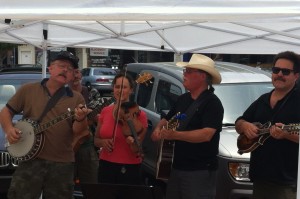Two of Wesleyan’s many centers of interdisciplinary scholarship have new leaders who are doing exciting things:
Jennifer Tucker is now the interim director of the Allbritton Center for the Study of Public Life. Jennifer is a historian with deep interests in the intersection of visual and scientific cultures, paying especial attention to how this intersection is often mediated by questions of gender and sexuality. She has long been a member of the Science in Society Program and also currently chairs Feminist, Gender and Sexuality Studies (FGSS). You probably have seen her op-ed on the “science” behind Congressman Akin’s notions of pregnancy and rape, and she is eager to see even more Wes faculty (especially women faculty) contribute to the public sphere through essays, op-eds and editorials. I’ve gotten to know Jennifer better because of our mutual interest in the intersections of photography and history. Nature Exposed, her book on Victorian science and photography, is already a key text in the field, and she recently edited an issue of History and Theory devoted to photography, history and philosophy. At the Allbritton Center, Jennifer will be developing the foundations and frameworks for planning future programs that link the campus to the most pressing issues in the public sphere.
Ethan Kleinberg began his stint as director of the Center for the Humanities this summer. Ethan is also a historian, with a joint appointment in the College of Letters. I first encountered his work many years ago when he was doing research for his excellent book, Generation Existential, a study of the impact of Heidegger on 20th century French intellectual history. In addition to his work in history and COL, at Wesleyan Ethan has been one of the creators of the Certificate in Social, Cultural and Critical Theory, and he is the Executive Editor of History and Theory. Ethan intends to build on the great tradition at the Center for dynamic interdisciplinary research and teaching, ensuring that Wesleyan’s humanities programs remain a crucial node in the networks of international scholarship. Students, faculty, and distinguished visitors make the Center for the Humanities a place where knowledge happens — where scholarship gets jump-started. You can learn more about Ethan’s vision for the Center here.
There are many faculty across the campus doing exciting things across the disciplines — from the College of the Environment to the Center for East Asian Studies. These two new leaders will surely add to our distinctive educational experience on campus — and beyond!



